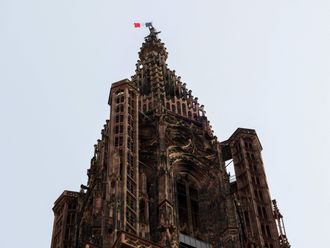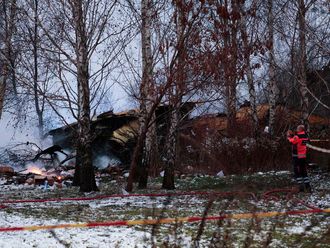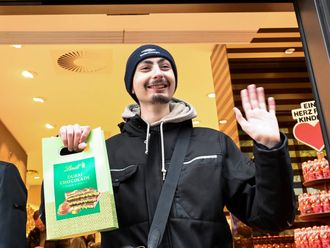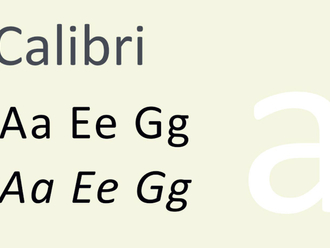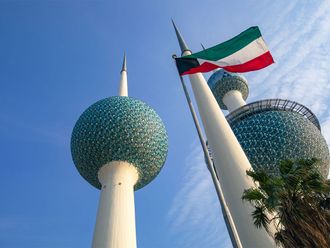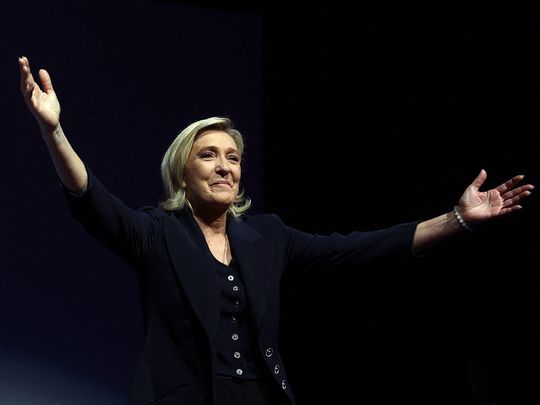
Paris: France's far right was on Sunday eyeing a historic chance to form a government and claim the post of prime minister after winning the first round of legislative elections with the centrist forces of President Emmanuel Macron coming in only third.
But it remained unclear if the far-right National Rally (RN) party of Marine Le Pen would win an absolute majority of seats in the new National Assembly in the July 7 second round that it needs to be certain of winning power.
Macron had stunned the nation and baffled even some allies by calling snap polls after the RN trounced his centrist forces in European Parliament elections this month.
But that gamble risks backfiring, with Macron's alliance now expected to win a far smaller minority contingent in parliament. That would make the president a far less powerful figure for the remaining three years of his term.
Projections from prominent French polling firms gave the RN 34.5 percent of the vote, compared to 28.5-29.1 percent for the left-wing New Popular Front alliance, and 20.5-21.5 percent for Macron's centrist camp.
The polling agencies projected this would give the RN a majority of seats in the 577-seat National Assembly after the second round but it was far from clear it would garner the 289 seats needed for an absolute majority.
The projections varied sharply, with Ipsos forecasting 230-280 seats, Ifop 240-270 and Elabe the only organisation to put it in the range of an absolute majority on 260-310 seats.
In a statement, Macron called for a "broad" alliance against the far right in the second round which will see run-off votes where there was no outright winner in the first round.
The leftwing alliance and the president's camp will be hoping that tactical voting to prevent RN candidates winning seats will leave it short of the absolute majority.
"We have seven days to spare France from catastrophe," said Raphael Glucksmann, a key figure in the left-wing alliance.
'Prime minister of all French'
With the French facing their most polarising choices in recent history, turnout soared. The Elabe organisation projected a final turnout of 67.5 percent, the highest participation in a regular format legislative election in France since 1981.
The final turnout in 2022 was just 47.5 percent.
Macron said that the high turnout in the first round spoke of "the importance of this vote for all our compatriots and the desire to clarify the political situation."
With Russia's war against Ukraine in its third year and energy and food prices much higher, support for the anti-immigration and eurosceptic RN party has surged despite Macron's pledges to prevent its ascent.
The two-round vote could put the far-right in power in France for the first time since the Nazi occupation in World War II and give 28-year-old RN party chief Jordan Bardella, a protege of its longtime leader Le Pen, the chance to form a government.
"Nothing is won and the second round is decisive," Le Pen told supporters. "We need an absolute majority so that Jordan Bardella is in eight days named prime minister by Emmanuel Macron."
Bardella said he wanted to be the "prime minister of all French."
This would create a tense period of "cohabitation" with Macron, who has vowed to serve out his term until 2027. Bardella has said he will only form a government if the RN wins an absolute majority in the elections.
'Heavy defeat'
The alternative is months of political paralysis and negotiations to find a solution for a sustainable government that can survive no-confidence votes.
Hard-left leader Jean-Luc Melenchon said Macron's centrist alliance had suffered a "heavy and undisputable" defeat in the snap polls.
In the southern city of Marseille, Nabil Agueni said he had skipped the European elections but voted on Sunday.
"As long as we have a choice, it's better to go and vote", the 40-year-old said.
Nicole Cherprenet, a 79-year-old voter in Paris, said: "The future scares me."
Macron's decision to call the snap vote plunged the country into political turmoil and sparked uncertainty in Europe's second-biggest economy.
The Paris stock exchange suffered its biggest monthly decline in two years in June, dropping by 6.4 percent, according to figures released on Friday.


